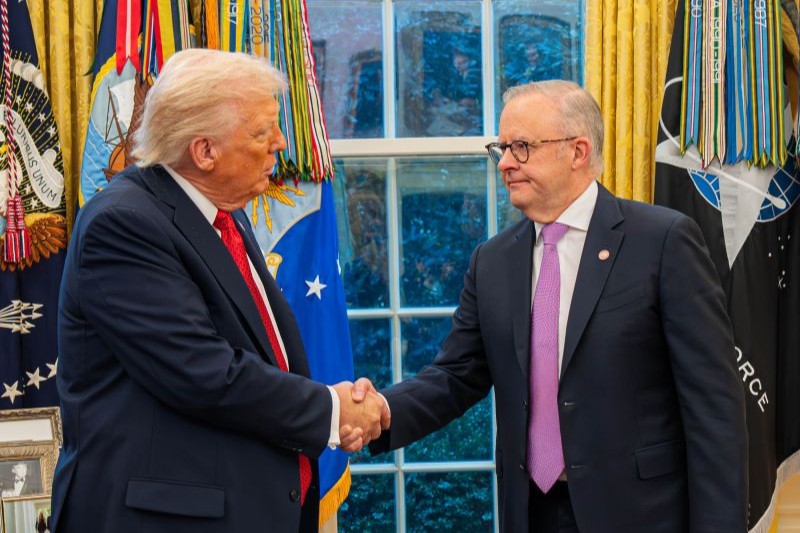A landmark Australia-United States deal on critical minerals and rare earths will help unlock economic prosperity for future generations if the policy settings are right, says CCIWA Chief Economist Aaron Morey.

L-R: United States President Donald Trump and Anthony Albanese. Image: Anthony Albanese/LinkedIn
The bilateral critical minerals framework, signed on October 21 between Prime Minister Anthony Albanese and US President Donald Trump, aims to deliver a supply chain for critical minerals and rare earths for both nations, supporting defence and advanced technologies.
The US and Australia also pledged at least US$1 billion each to fast-track a US$8.5b pipeline of critical minerals projects in both countries.
“Australia is home to much of the periodic table of critical minerals and rare earth metals that are vital for defence and other advanced technologies,” said Prime Minister Albanese.
“Cooperation on critical minerals and rare earth supply chains is testament to the trusted partnership between Australia and the United States as strategic defence allies.”
He said the framework builds on the Future Made in Australia agenda, which is “consistent” with President Trump’s America First plan.
Have questions about the Federal Government’s agenda? Ask Treasurer Jim Chalmers at one of our last political events for the year.
WA at the centre of global demand
WA is expected to be a major beneficiary of the framework. The State produces more than 40% of the world’s lithium and is among the top five global producers of nickel, cobalt and rare earths.
According to the International Energy Agency, global demand for these materials is forecast to surge between 2025 and 2040, including lithium by five times, while nickel and graphite is expected to double.
Investment to supercharge projects, but challenges remain
CCIWA’s Morey welcomed the Prime Minister’s successful engagement with the President, as well as his strong focus on critical minerals and rare earths.
However, he said hurdles for industry remained, particularly the environmental approvals system.
“At the moment, any new critical minerals project in Australia would face lengthy approval delays and duplication – challenges that are not faced by our global competitors,” he said.
Morey said planned reforms to the EPBC Act would be central to ensuring Australia could capitalise on strong investment appetite in critical minerals for products such as batteries, solar and wind infrastructure, technology, health and military projects.
“Australia has abundant supplies of rare earths and critical minerals, but we need an approvals system that strikes the right balance,” he said.
“We are hopeful that the reforms to the EPBC Act, expected in Federal Parliament before Christmas, will make it easier to make these projects viable – not harder.”
To find out more about what we stand for, visit our Policy and Advocacy page.












